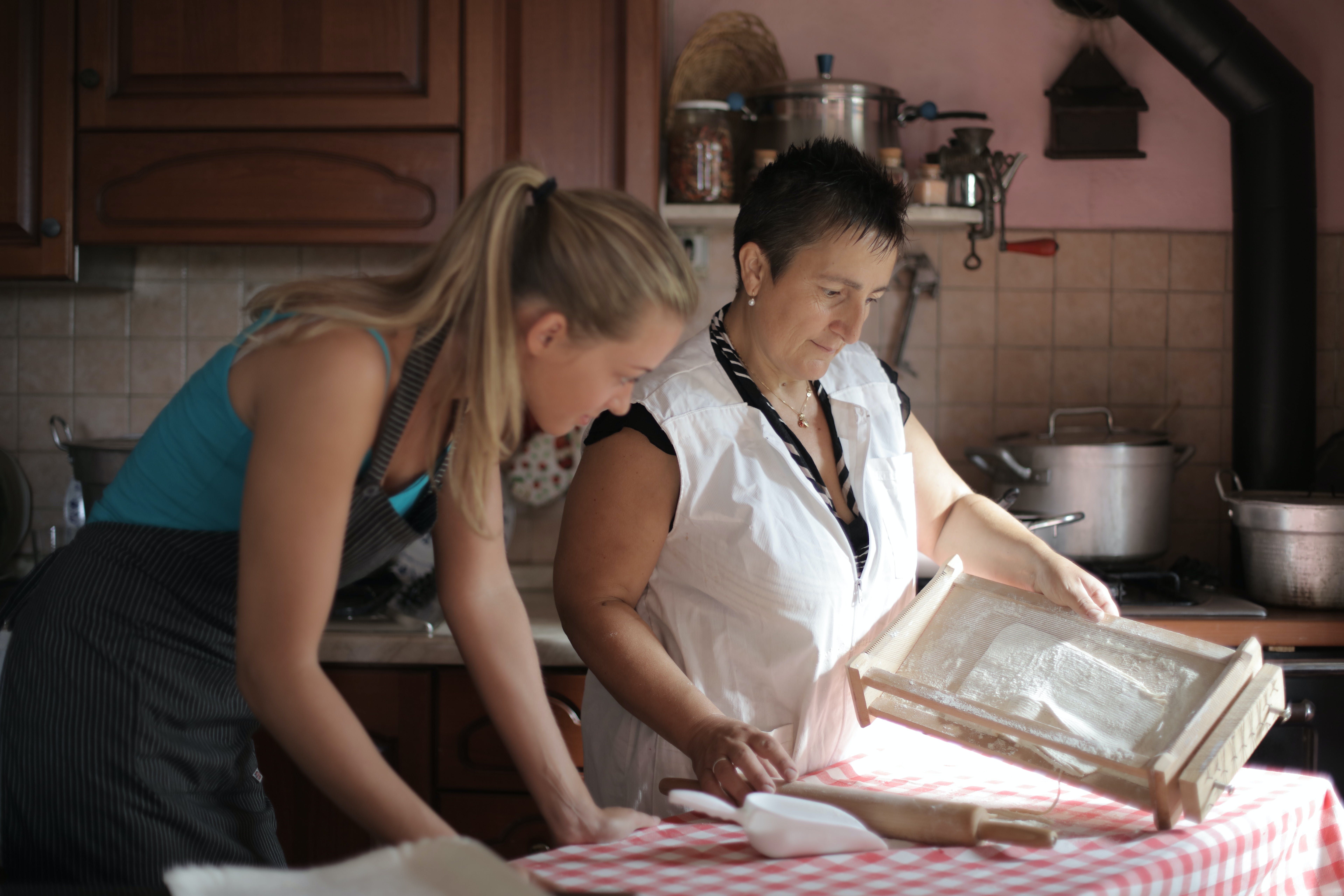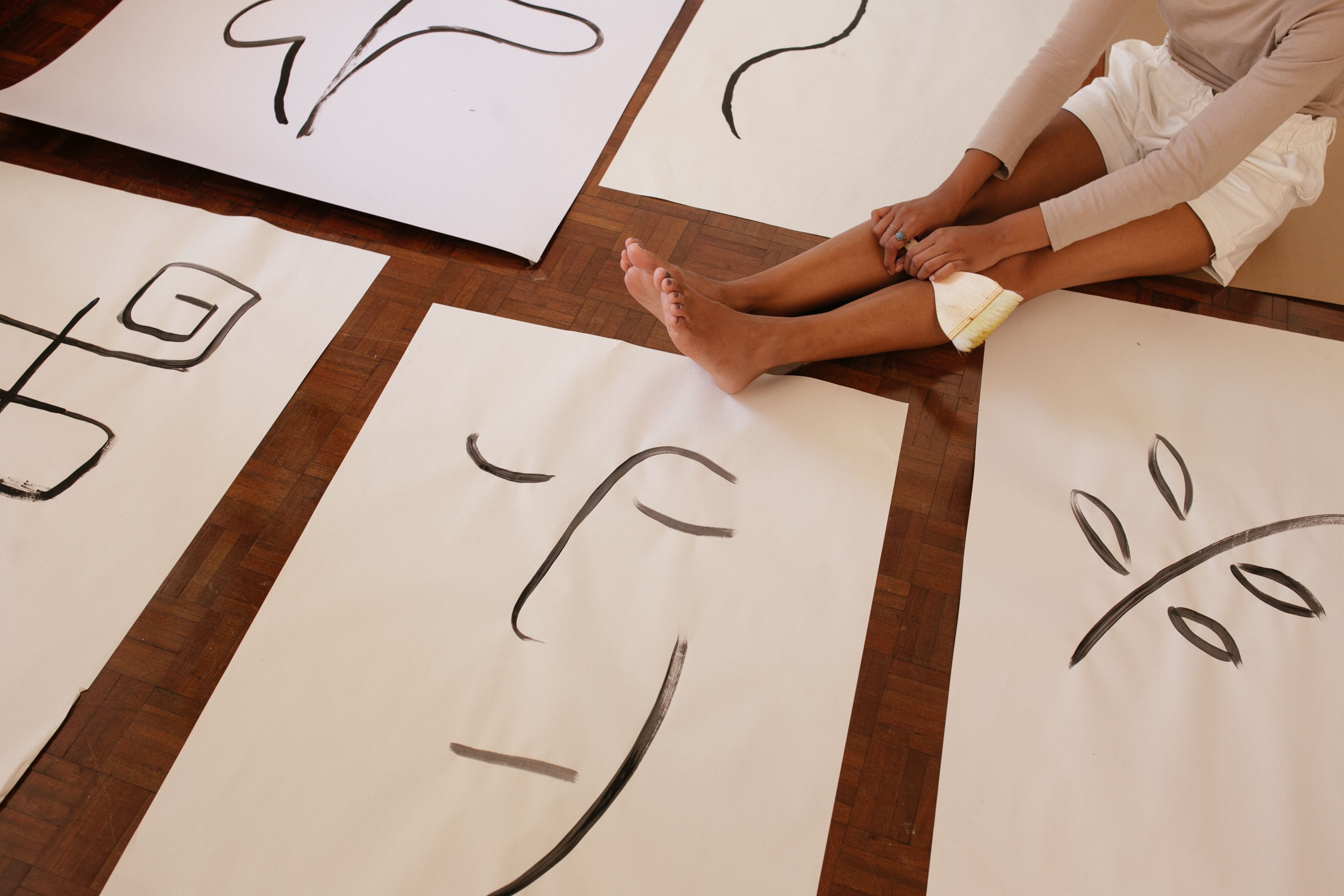
Why Our Families Affect Us So Much
An Intro to Family Systems Therapy and Bowen’s Family Systems
The weather’s a little more frosty.
Nights are a little more dark. My Starbucks cup is a little more festive. Grocery shopping is a little more Mariah-Carey-y.
And I’m…getting a little more anxious.
I love the holidays. And, I love my family. But over the past few years, I’ve started to feel disconnected.
Baking cookies isn’t as sweet. Scheduling activities is stressful. I get tense about simple things, and even the most nostalgic traditions fail to recapture the ease and comfort of my younger years. I don’t feel like myself.
Being stressed around family is extremely normal. In fact, it’s how family works.
Psychology offers a number of theories that can help us understand family dynamics as what they are: systems. And while family dynamics may still be stressful, or even dysfunctional, or even toxic, re-framing them as depersonalized, systemic issues is the best way to find your path forward. (Family systems therapy helps, too.)
Bowen’s Family Systems Theory
Bowen's family systems theory is a cornerstone of modern family systems therapy, and most licensed family therapists apply it — at least to some extent — to deliver high quality care.
Many of the concepts behind Bowen Theory can help us better understand why our families impact us the way that they do. It can even help us glean new insights into why we developed into the people we are today, and how to forge a stronger sense of self when interacting with old family patterns.
What Bowen’s theory says about family stress
Bowen's family systems is named for psychiatrist Dr. Murray Bowen, who — in the 1950s — developed what we now call Bowen Theory. The central idea is that families are not merely a collection of individuals in relation to each other. Instead, a family is a system; an emotional unit in its own right.
Stress is experienced as a whole family, regardless of where it is coming from, or who it is most immediately impacting. And, the family unit functions by funneling stress to family members in unique and patterned ways.
Bowen's family systems is considered a foundational theory for family systems therapy today. For the most part, it has been applied by social workers, therapists, and behavioral health professionals. But all of us can use this theory to better understand why our families affect us so much.
Triangles
We often think of relationships as being one-to-one, between two people. In reality, families are systems of multi-dimensional relationships. Bowen’s family systems introduces the idea of triangles as a building block for a family system, made up of various triangles between three relatives.
Triangulation can help us understand why, when two parents team up on a “difficult” child, that child might rebel. Triangles often create two insiders, and one outsider.
It also explains why, when we’re arguing with a sibling, they might turn to another for back-up. Family drama has a way of transferring conflict to nearby relationships.
Another example is the classic scenario of parent-child stress becoming marital stress, when one parent intervenes to defend the child. Conflict can be passed around different sides of the triangle, dynamically.
Differentiation of self
Having a strong sense of self — separate from your family — has a formative impact on how you function, particularly around relatives.
Bowen’s theory argues that we are each born with varying capacities for “self.” And, our family dynamics will impact how much “self” we actually develop.
When we are with our families, there is an inevitable amount of interdependence. We rely on our family for some amount of shelter, food, and safety. That interdependence makes it extraordinarily difficult to balance the needs of the group, and our own needs.
Ideally, when we make selfless choices for our family, we’d do so intentionally. But, those of us with a weaker sense of self are prone to make sacrifices based on the pressure we’re feeling from our families, rather than free choice.
Nuclear family emotional process
The nuclear family — where two partnered co-parents act as head of household — is often marked by common emotional patterns.
Between parents, there may be marital conflict, where each adult “externalizes his or her anxiety into the marital relationship,” and “focuses on what is wrong with the other.” In less equal partnerships, this looks like dysfunction in a spouse, where one partner is dominant and the other loses their sense of self.
When parents are on the same team, though, they might triangulate their anxiety toward a child. Bowen’s family systems describe this pattern as impairment of one or more children, where anxieties are directed at one child. That child is prone to trying to absorb the stress of the family, and ultimately, to act out or externalize that tension.
When any of these patterns appear, it is common to see emotional distance take place, where we find ourselves self-isolating to avoid the intensity of our family relationships.
Family projection process
Most of our greatest stresses can be attributed to our parents’ greatest fears.
Bowen’s family systems theory unpacks a three-step process by which parents project their worries onto their offspring:
- Scanning: parents focus on their child out of fear.
- Diagnosing: parents interpret the child’s response as confirming their fear.
- Treating: parents treat the child as if there is something wrong with them.
Building on the idea of triangles, this process usually is particularly intense between one parent and child, with the other parent acting as an outsider.
When a child is treated this way by their parents, they inevitably become more reactive and sensitive to how their parents — especially the “inside” parent — feel. Even into adulthood, they may fall into habits of people-pleasing and anxiety.
Multigenerational transmission process
Our sense of self has a huge impact on all areas of our lives. Your parents are a determining factor of your self-differentiation.
Most of the time, parents find each other as partners because they have similar senses of self. And if your parents have a strong sense of self, you likely will, too.
The differences between you, your parent(s), and your siblings are probably actually quite subtle. One member of the family might be a little more independent, or a little more needy. But, generally, we mirror the parents.
So, it may not be that helpful to try and understand your family by making comparisons to each other. The really big differences happen over many generations, with subtle differences becoming progressively exaggerated with each set of offspring.
If you want to understand why you depend on your family’s opinion, you might want to look further than how you were parented. Instead, think about how your parents were parented. Look at your extended family. How is your branch of the family tree similar, or different?
Emotional cutoff
Bowen’s family systems theory acknowledges that most of us have unresolved attachments with our family. This is particularly salient for those of us with a weaker sense of self.
Does one of your adult siblings act childishly when your parents are around? Has your family ever gathered, enjoyed a period of polite peace, and then broken out into shouting matches or crying? Have you gone home for the holidays, and felt disappointed?
These are the kinds of experiences that come from emotional cutoff.
The concept of emotional cutoff describes the ways that we simply stop trying to resolve relationship stress from childhood. This cutoff results in unresolved attachments that can develop into distress over time. This cutoff can look like severing all contact, but for many, it is a more suppressed process of internalizing and compartmentalizing relationship stress in hopes of an idealized, easy experience.
Sibling position
Many theories behind family systems therapy — including Bowen’s family systems, and Family Constellations — emphasize the influence that birth order has on our development.
- Oldest siblings tend to have a strong characteristic related to leadership. They may find comfort taking charge, or — if they have a weaker sense of self — they may have particularly big reactions to responsibility.
- Youngest children often react strongly to being a follower. They may prefer (or even insist) on following others’ directions, or they may defiantly reject leadership.
- Middle children tend to adapt to the family system instead of having a defined role. If the oldest sibling struggles with responsibility, the middle child may step in, developing strong characteristics of leadership. Or, if the youngest sibling rebels, the middle child might be prone to accommodate to maintain the balance. So, even though there’s no single profile of a middle child, they commonly show a pattern of absorbing the entire family’s stress, resulting in a weaker sense of self and higher reactivity.
How to find family systems therapy
Theories like Bowen’s family systems give us an opportunity to step back from the quirks, communication problems, and patterns of our own families. But, theory isn’t enough to address those unique challenges. The help of a high-quality, in-network therapist can take shape to match whatever feels most supportive to you.
Individual therapy
Family systems therapy can be adapted to one-on-one work that an individual can do with their therapist. Activities can be exercises like creating a map of your family, borrowing concepts from Bowen’s family systems.
A popular form of therapy for family issues is Internal Family Systems therapy, a type of individual therapy. The IFS Model applies a family systems perspective to the inner parts of our personality, allowing us to observe them as a family system in their own right.
IFS therapy can be valuable if you are conflicted about your own feelings. IFS therapy might also be a helpful entry point to family systems therapy if others are unwilling to join you in therapy.
Group therapy
Group therapy can be a powerful, less-known approach to family systems therapy. In these settings, a therapist or facilitator may lead a group of individuals from different families.
The group can operate similarly to a support group, giving you access to a community of people working through similar challenges. Group family systems therapy also offers an opportunity to try therapeutic exercises, like role play, that aren’t possible in individual therapy.
Family systems therapy
There are a number of modalities for family systems therapy — like Structural family therapy — that involve multiple members of a family in the therapeutic experience.
This kind of family therapy can go a lot deeper than solving a particular conflict, unlocking key insights and building shared skills that reduce stress in the entire family system.
Next steps
Families feel together.
No matter what your relationship is with your family of origin, it is totally normal to experience family stress that is difficult to explain. In fact, that stress probably has more to do with the anxiety of your family system, which is a thinking and feeling entity in its own right.
Families feel together. And, it doesn’t always feel good. Family systems therapy and concepts like those of Bowen's family systems give us the chance to take a step back and figure out what’s really going on, and to pursue positive change.
There are experts who can help. Get free tips in your inbox on finding a therapist who can help you and your family.
Nov 20, 2023

Looking for a therapist?
Get tips on finding a therapist who gets you.
By submitting this form, you are agreeing to Alma's privacy policy.



